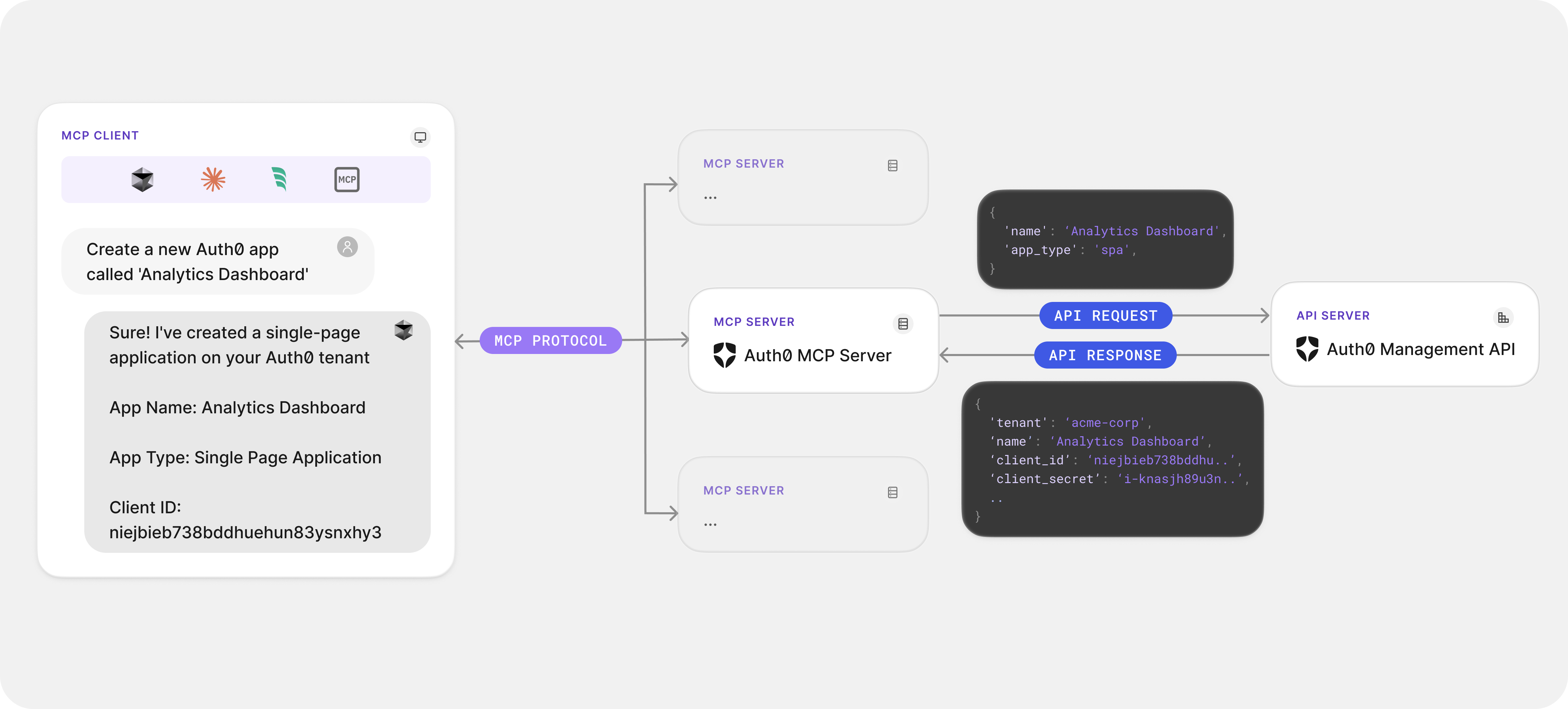Model Context Protocol (MCP)
Model Context Protocol (MCP) is a standardized protocol that enables AI assistants to communicate with external tools and APIs. Designed for developers using both AI-powered code editors like Cursor or Windsurf or general purpose tools like Claude Desktop, Auth0 provides an MCP Server that seamlessly connects these assistants to your Auth0 tenant, allowing them to perform complex, multi-step operations through simple conversations.
With MCP integration, you can ask your AI assistant to handle Auth0 tasks for you like creating applications, managing users, or deploying actions, using natural language instead of navigating dashboards or writing code. This transforms how developers manage their identity infrastructure, making it faster and easier to work with Auth0 services.

Authentication and credential security
Auth0 MCP Server prioritizes robust security by managing authentication, validating requests, and ensuring secure communication with the Auth0 Management API. This includes:
OAuth 2.0 Device Authorization Flow: Securely authenticates requests with Auth0.
Secure credential storage: Credentials are securely stored in your system's keychain and never exposed in plain text.
Minimal API permissions: Only essential permissions are requested, adhering strictly to the principle of least privilege.

Supported tools and integrations
Auth0 MCP Server currently integrates with the following MCP clients, including:
Additional integrations will be added as major new clients emerge. For a complete list of supported tools and detailed functionality, please refer to our Model Context Protocol (MCP) Tools Reference.
Next Steps
Ready to get started? Visit our Getting Started with Model Context Protocol (MCP) guide to begin integrating Auth0 MCP Server into your workflow. For developers interested in deeper insights or contributing, check out our repository on GitHub.